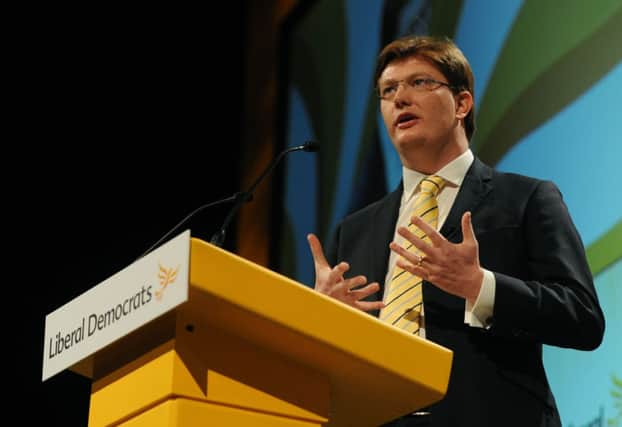David Maddox: Tax cuts are back on the agenda


With the election in May next year and the Scottish referendum on 18 September, the economy has turned round just in time for the Tory-Lib Dem coalition and it can start setting an agenda that is not solely about recovery from the economic cardiac arrest the UK suffered in 2008.
Already there are strong hints of precisely where Chancellor George Osborne and Chief Treasury Secretary Danny Alexander want to go as the two of them put the final touches to the statement next week, which can be summed up in two words – “tax cuts”.
Advertisement
Hide AdAdvertisement
Hide AdOne of the most popular things the coalition has done has been to raise the threshold from where people start to pay income tax, to £10,000. In fact so successful has the policy been that the Tories have decided to pretend it was their idea all along, when in fact it was on the front of the Lib Dem manifesto.
But there has been speculation in Westminster that in this Budget or next year’s final one before the election, Osborne may try to spike the Lib Dem election campaign by delivering their well-trailed 2015 election pledge of raising the threshold to £12,500 early. This would mean anybody working full-time on the minimum wage would pay no income tax. Nick Clegg’s speech over the weekend suggested that this might be happening by claiming that he and Alexander were “pressing for an early increase above £10,000”.
Already, Osborne has also signalled an increase in the minimum wage to as much as £7 an hour, all part of the philosophy of “making work pay” and the “white van Conservatism” of one of the party’s most influential back-bench figures, Robert Halfron.
However, while basic rate payers have been doing well, the higher 40p rate has been creeping downwards, sucking in many more middle earners, from just over 1.7 million in 1993-94 to 4.4m in the current tax year. It is here where the Tories believe they can win the election and there is a lot of pressure on the Chancellor to raise the point at which people pay the higher rate to £50,000. Movement on this is now widely expected.
While there is still one more Budget after next week’s before the general election, this is the last one before the independence referendum north of the Border and there would be genuine shock and surprise if there was nothing for Scotland. Most likely is the widely called for freeze or cut in the duty of spirits, particularly Scotch whisky, after a strong campaign over duty levels being far higher than for beer and cider.